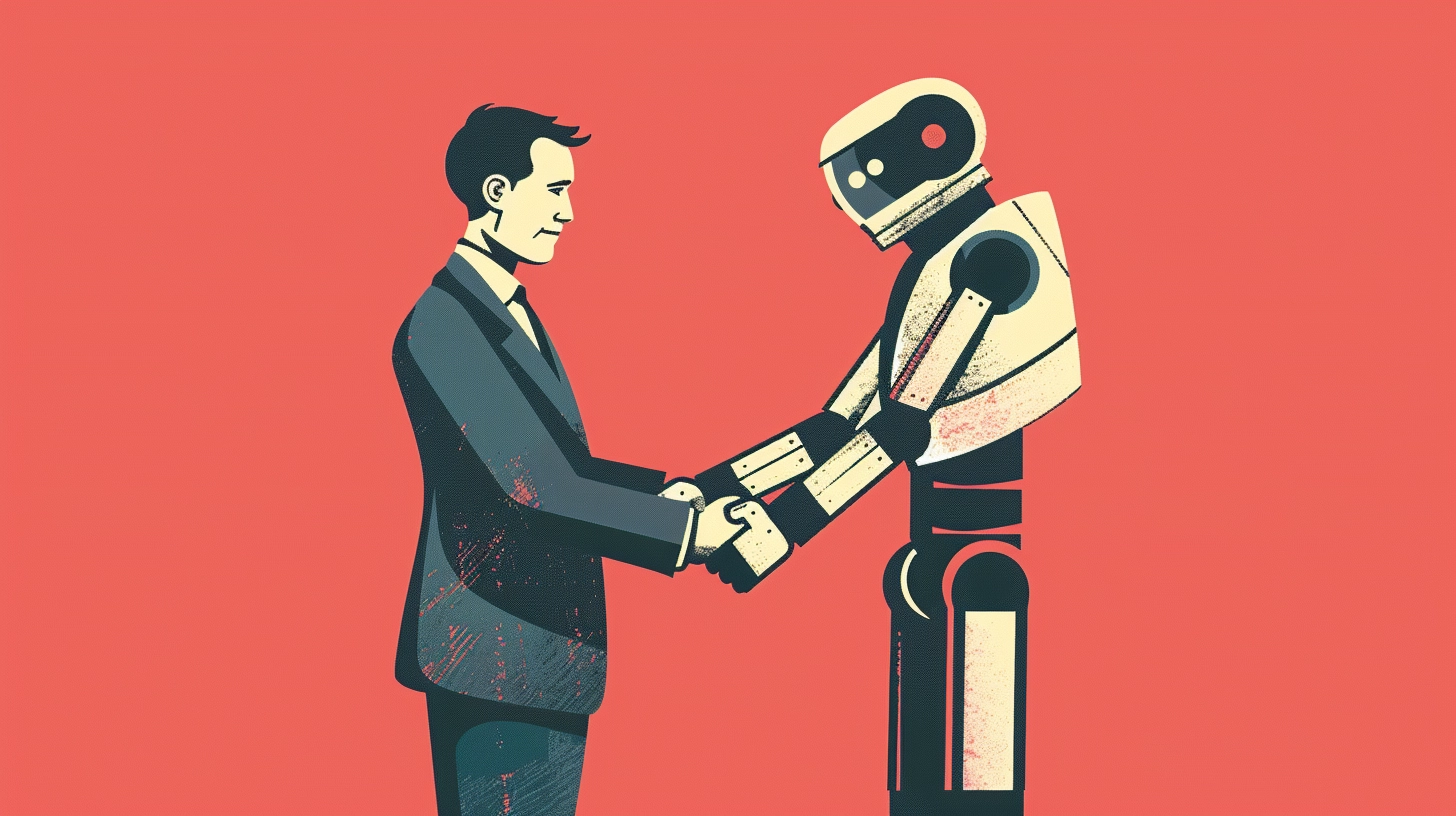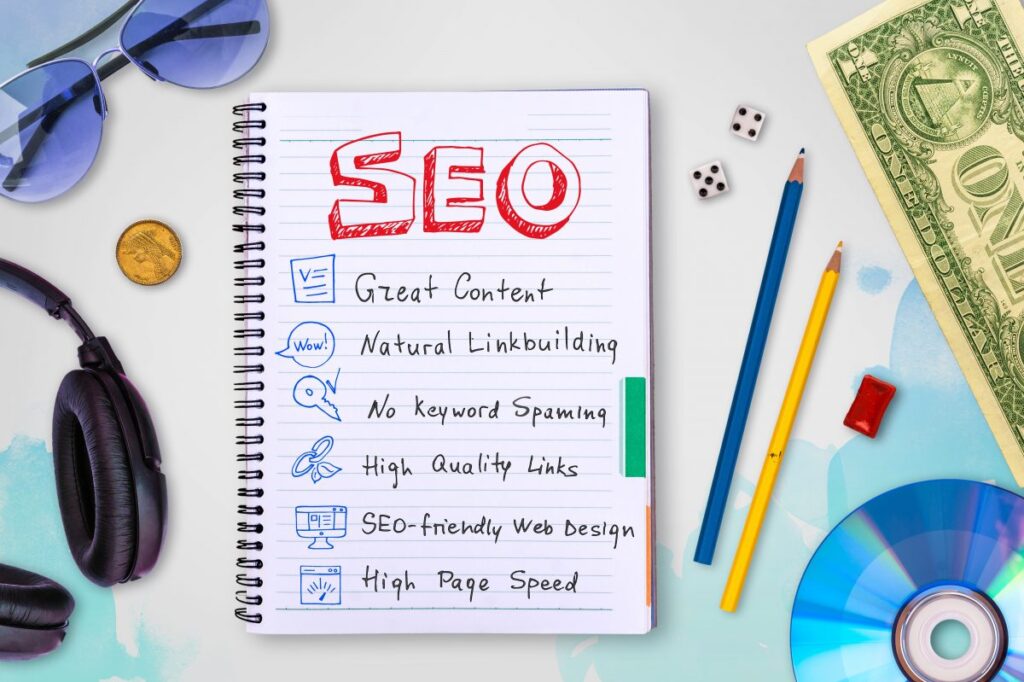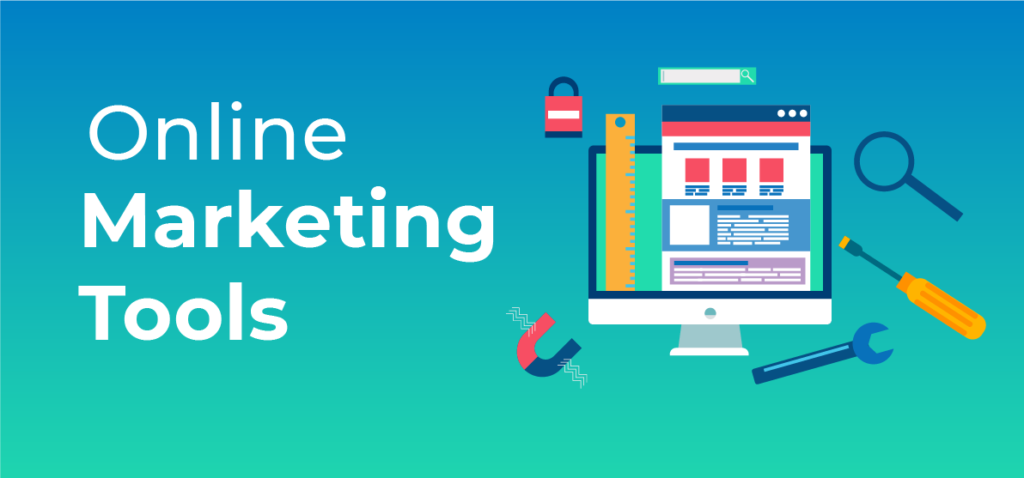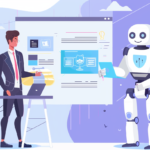By 2030, the global industrial automation market is estimated to reach $441.7 billion in value. At the same time, Yahoo Finance projects that the digital advertising and marketing industry will be worth $1.5 trillion by 2030. Now, merge the two statistics together and visualize the immense impact of marketing automation in the world.
Marketing automation isn’t exactly a novel concept. Brands have been doing it for quite some time now. An automated email giving a customer a discount for their birthday is an example of marketing automation. The same goes for re-engagement emails or abandoned cart reminders.
But the scope for marketing automation, like many other things, has broadened since the advent of AI. Now, there’s an AI tool for pretty much any marketing task you can imagine.
Let’s look at the potential of AI in marketing automation and CRM (Customer Relationship Management) campaigns.
Evolution of Marketing Automation
The way marketing automation has evolved is reflected in the numbers projected for the industry’s growth. In 2023, the marketing automation software market revenue was $5.4 billion, but this figure is expected to reach $11.25 billion by 2031.
Marketing automation software market revenue worldwide from 2022 to 2031
But what exactly is driving this growth? A major factor is the growing demand for personalized and targeted marketing strategies. As consumers have become increasingly bombarded with generic advertisements, they have become more desensitized and less likely to engage with them. Now, they want personalized marketing content.
For instance, instead of ”Dear Customer,” they want ”Dear Mr XYZ.” However, it’s nearly impossible for a company’s human marketing team to send personalized messages to thousands of customers. That’s where automation takes center stage.
As time moved on, customers became even more demanding, mainly because of the vast number of choices. Back in the day, a customer would be forced to shop with you even if you offered poor service because they had no other choice. But that’s not the case anymore.
The increasing competition brought a new concept to marketing: predictive analytics. Marketers started collecting and analyzing customer data to make predictions about what they might want even before they expressed their desire. AI helps here.
At the root of this evolution is an improvement in the customer experience. A 2022 survey found that 43% of marketers expect to gain a better customer experience out of their marketing automation. Similarly, 35% said that marketing automation helped in better decision-making, while 38% said it helped their staff use their time effectively.
Leading benefits of using marketing automation
Why Use AI in Marketing Automation
We could say, why not? and call it a day. But there’s more to AI use in marketing automation than simply because you have to.
AI in marketing automation and CRM can help streamline many processes in your campaigns. The marketers can then use the saved time to focus on other ”humanistic” tasks, such as strategizing and brainstorming.
AI marketing automation also facilitates the process of sending personalized content, be it emails or promotion deals. So, every single one of your customers feels special.
However, predictive analytics is probably the most significant contribution of AI to marketing automation. Amazon is an example most of us are familiar with. When you’re shopping for a product, the website shows you recommendations based on your browsing behavior and past purchase history. Since you see the products you’re already interested in, you’re more likely to make additional purchases.
In a survey, 55% of respondents said that AI will improve their marketing efforts. Besides predictive analysis and personalization, they also expect to benefit in terms of ROI optimization and cost efficiency.
Benefits of AI marketing automation
Role of AI in Marketing Automation
The way a business uses AI in marketing automation and CRM depends on its objectives. For some, it might be reaching more customers, and for others, it could be hyperpersonalization. Either way, AI can assist in the following marketing tasks.
Personalization
McKinsey’s Next in Personalization Report has two major findings:
- 71% of customers want personalized interactions from businesses.
- 76% of customers get frustrated when brands don’t offer them personalized interactions.
You want to do both, don’t you? First, you want to meet your customers’ expectations. Second, you don’t want to make them unsatisfied or unhappy with your business.
AI in marketing automation lets you provide an unprecedented level of personalization. Netflix is a good example. The streaming service uses AI to analyze your viewing habits and recommend personalized content for you.
Another example is Whole Foods’s Just Walk Out stores. The company first opened them across the US in 2021. Customers could just come in, shop for stuff, and leave without ever having to go through the register.
How did they pay? AI, weight sensors, and cameras.
Just Walk Out store
The cameras track what customers pick up and put in their basket, and deep-learning technology automatically charges them when they leave the store. AI gathers the customers’ purchase information to identify their shopping patterns.
Based on these patterns, AI could predict their future behavior. Whole Foods could then use this information to send personalized promotions and offers to these customers.
Quick Read: How to Use AI in Marketing: Best Practices 2024!
Lead Nurturing
So, you’ve scored a lead. Let AI take it from there.
The right blend of AI tools can automate the entire lead nurturing process from start to finish. It can help you identify and target potential customers, personalize outreach efforts with AI-generated content, schedule follow-ups, and monitor leads’ progress through your sales funnel.
Email Automation
Emails are as big as they ever were. In fact, by 2027, email marketing will bring in a revenue of $17.9 billion. So, it’s no surprise that marketers focus heavily on email marketing.
Email marketing revenue worldwide from 2020 to 2027
But with so many other avenues, like social media, opening up, there’s not enough time to handle email-related things manually.
Enter AI.
Here’s what it can do:
- Automated Sending: AI lets you automate email sending. You can select the day and time for the emails to go out, and AI will take care of the rest.
- Segmentation: AI can segment your customer pool based on your desired factors, like demographics and past purchase behavior.
- Performance Analysis: How many people open your emails? Are your subject lines enticing enough? AI can analyze all of this for you to curate better email marketing campaigns in the future.
Customer Service
AI not only speeds up customer service but can also make it more fruitful. Instead of just helping a customer out, AI also drives insights from their interactions with your brand.
Also, customers don’t mind talking to chatbots as much as many businesses might think. About 62% of customers said they would rather talk to a customer service chatbot than wait for 15 minutes to speak to a human representative.
So, chatbots can be pretty helpful in matters where customers need quick responses. They can answer frequently asked questions and recommend solutions based on customers’ problems.
Latest Trends and Strategies of AI in Marketing Automation and CRM
Let’s look at a few trends and strategies in AI marketing automation for you to take notes from.
AI-Driven Content Creation
Hubspot’s report found that most marketers are now using AI in their campaigns. While 33% of marketers use AI tools to generate ideas, 28% use them to write copy and 26% use AI for creating marketing images.
How marketers use AI
Marketers have many tools at their disposal these days. For example, they can use Looka to create logos, Copy.ai to write content, Midjourney to create marketing images, Elai to add voiceovers to videos, and Veed to create AI-generated videos.
Personalization with Predictive Analytics
According to Harvard Business Review, AI-powered data science can predict everything from customer lifetime value to the content they will like. Marketers can use this information to offer dynamic product recommendations to their customers.
AI can also provide insights on when it is the right time to send marketing data and who to target. Going forward, marketers will have to leverage AI in predictive analysis to tailor their messaging to customers most likely to buy and those who will be most responsive.
Dynamic Pricing Strategies
We touched on it a bit before, but dynamic pricing is another area where AI can really shine. Simply put, it means changing the price of a product or service based on factors like supply and demand, customer behavior, competitor pricing, etc. Such flexibility in your pricing can increase sales.
But how does AI factor into this? Well, you can use relevant AI tools, such as Dynamic Pricing AI, to analyze and process data from various sources in real-time. These tools can then make pricing recommendations that are continuously optimized for maximum profit based on the current market conditions.
Uber is a good example. During peak times, you see higher fares on the app. But when it’s off-peak, the rates are lower. Some other examples include Airbnb and Amazon.
Dynamic pricing
Real-world Examples of AI Marketing Automation
Sometimes, you need an example of how another company is doing something to replicate the same thing in your campaigns. Here are a few examples to take inspiration from.
MovingWaldo
Moving Waldo is a Montreal-based digital concierge that connects customers with professional movers and similar services. The company sends over 100 targeted emails per month. How? By using AI-powered tools to segment its audience.
Since email sending is automated, Moving Waldo can save a lot of time. The brand also uses AI-driven email insights to craft customer journeys and increase conversions by targeting the right lead at the right time.
The Economist
The Economist is a reputed digital publication that uses AI-based programmatic advertising. Back in 2017, the company noticed a reduction in its audience. The publication then used programmatic advertising to buy and sell targeted ads. In doing so, they also gathered consumer data, such as reading preferences and habits.
They further focused on additional data sets, like matching cookies, to discover their audience segments. As a result, their readership increased by 3.6 million, and they achieved an ROI of $10 to $1.
Also Read: Best AI Newsletter Apps for Marketers in 2024 To Enhance Productivity!
Future Outlook and Potential Developments
What does the future look like for AI in marketing automation and CRM? Here are some potential developments.
The Rise of Conversational Marketing
Data from Drift’s report shows that customers’ expectations for an immediate response have increased in the past few years. Meeting this requirement will only be possible through conversational AI.
Expectations of immediate response from 2019 to 2021
Conversational marketing simply means using real-time conversations to engage with customers and leads. AI-powered chatbots will make this happen.
Gartner predicts that AI will automate every 1 in 10 agent interactions by 2026. Conversational AI will also help businesses save $80 billion in contact center agent labor costs. The cost savings alone are enough to motivate businesses to adopt conversational marketing.
Hyperpersonalization as a Marketing Tool
Personalization will step up a notch to become hyper-personalization in the future. McKinsey says that it should be the ”vision for 2025” since truly knowing your customers and solving their issues preemptively is a long-term business strategy.
Integration of Augmented Reality in AI-Based Marketing
Augmented reality will also become a part of AI marketing automation. Brands like Sephora and IKEA have already started using AR to provide customers with a virtual try-on experience.
Sephora virtual artist
In the next few years, we’ll see all these technologies working together as a unit. For instance, AR will improve customer engagement through virtual experiences, whereas AI will handle the conversation and personalize it based on user expectations.
Takeaway
The rise of AI in marketing automation and CRM is due to the heightened need for personalization and efficiency. As businesses compete to meet ever-growing customer expectations, AI will complement automation tools and augmented reality to provide the full package of hyper-personalization.
Smart and strategic use of these technologies will help improve customer satisfaction and bring in more ROI. Plus, it will help businesses stay ahead of the game.
Frequently Asked Questions
Will Marketing Be Fully Automated by AI In the Future?
AI will not fully automate marketing in the future. While AI technology can handle repetitive tasks and data analysis, human intervention will still be needed for creativity, brainstorming, certain customer interactions, strategy, in-person marketing, and decision-making.
Which Marketing Processes Can Be Automated?
You can automate a host of marketing processes, such as email marketing, social media scheduling, data analysis, content creation, ad targeting, and personalization. Many businesses use AI-powered chatbots to automate customer service.
Which AI Tools Can Be Used for Marketing Automation?
Some examples of tools you can use for marketing automation are Veed (video creation), HubSpot (email marketing), Omnisend (e-commerce marketing), Show by Animaker (email personalization), Synthesia (video content creation), and Copy.ai (written content creation).







